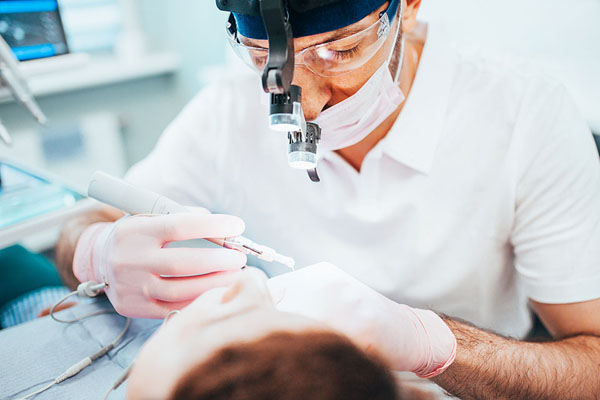Dental Bridge Risks and Complications in Knoxville, TN
Avoid Dental Bridge Risks and Complications with Our Experienced Knoxville Dentist
If you’re considering getting a dental bridgeto replace a missing tooth, it’s important to understand both the functional and aesthetic benefits and the potential risks and complications. Dental bridges are a trusted solution for restoring your smile, improving chewing ability, and maintaining facial structure. However, like any dental procedure, there are risks associated with dental bridges that patients should be aware of.
For expert guidance on avoiding dental bridge risks, contact our dentist in Knoxville, TN, today at (865) 687-8670. We proudly serve patients throughout East Tennessee, including Amherst, Marble City, West Knoxville, and surrounding areas.
Benefits of Dental Bridges
Before exploring potential complications, it’s worth understanding why dental bridges are such a popular tooth replacement option. Here are some benefits of dental bridges:
- Restored Functionality:Bridges allow you to chew and speak comfortably, reducing difficulty chewing and supporting proper oral function.
- Aesthetic Appeal:Dental bridges are designed to blend seamlessly with natural teeth, boosting confidence in your smile.
- Prevent Shifting Teeth:Bridges prevent adjacent teeth from moving, which can cause bite problems or misalignment.
- Durability:With proper care and professional cleanings, dental bridges offer long-lasting results—typically 10 to 15 years, especially when implant-supported.
- Cost-Effective Solution:Compared to dental implants, traditional bridges are often less invasive and more affordable.
Potential Risks and Complications of Dental Bridges
While dental bridges offer many benefits, patients should be aware of the possible complications of dental bridges and ways to avoid dental bridge risks.
1. Damage to Adjacent Teeth (Abutment Teeth)
Traditional and cantilever bridges rely on surrounding natural teeth for support. The teeth adjacent to the gap, called abutment teeth, are reshaped to hold the dental crownsthat secure the bridge. This can permanently alter these teeth and increase their vulnerability.
Risks include:
- Tooth Sensitivity:Shaping the abutment teeth can cause heightened tooth sensitivity to hot or cold foods.
- Tooth Decay:Improperly fitted crowns or poor oral hygiene can allow bacteria to accumulate, causing decay and gum disease.
- Tooth Fracture:Supporting a bridge adds pressure to abutment teeth, which may fracture over time.
2. Poor Fit or Bridge Failure
An ill-fitting bridgecan create discomfort and lead to bridge failure. Signs to watch for:
- Difficulty Chewing:Misalignment can make eating hard or sticky foods uncomfortable.
- Bridge Loosening:Over time, cement holding the bridge may weaken, causing it to loosen or fall out.
- Gum Irritation and Inflammation:A poorly fitted bridge can cause gum irritation, soreness, or receding gums.
If you notice persistent pain or discomfort, schedule a thorough examination with a dentist near you.
3. Gum Disease and Periodontal Issues
Improper oral hygienearound your bridge can increase the risk ofgum disease, including:
- Gingivitis:Early-stage gum inflammation with redness, swelling, or bleeding.
- Periodontitis:Advanced disease that can weaken supporting teeth and the jawbone.
- Receding Gums:Poor care or an ill-fitting bridge can expose tooth roots, leading to heightened tooth sensitivity.
Maintaining excellent oral hygiene—including flossing regularly and professional cleanings—helps reduce these risks.
4. Bone Loss
Unlike dental implants, bridges don’t stimulate the jawbone. Missing teeth can lead to bone resorption, which may:
- Weaken the Jaw:Reduced bone density affects the stability of surrounding teeth.
- Change Facial Appearance:Significant bone loss can cause a sunken facial appearance over time.
5. Infection or Abscess
Bacteria trapped under the bridge can lead to infectionor an abscess. Warning signs include:
- Persistent pain or swelling near the bridge.
- Bad taste or odor in the mouth.
- Pus formation requires urgent dental care.
6. Aesthetic Concerns
Even though bridges are designed for a natural look, complications can affect appearance:
- Color Mismatch:Natural teeth may stain or whiten differently from the bridge.
- Exposed Metal Framework:Receding gums in some bridges (like Maryland bridges) can reveal metal, affecting the smile.
Who Is at Higher Risk for Complications of Dental Bridges?
Certain factors may increase dental bridge complications:
- Poor Oral Hygieneor inadequate dental hygiene practices.
- Pre-existing Dental Issues, such as cavities or gum disease.
- Bruxism (Teeth Grinding):Can cause excessive pressure on bridges.
- Medical Conditions:Diabetes or autoimmune disorders may impair healing.
- Smoking:Compromises gum health and healing, increasing the risk of further complications.
Our Local Dentist’s Knoxville Tips on Avoiding Dental Bridge Risks
To minimize potential risks and complications, follow these best practices:
- Maintain excellent oral hygiene with daily brushing and regular flossing.
- Schedule regular dental checkups for professional cleanings and early detection of issues.
- Avoid hard or sticky foods that could damage your bridge.
- Monitor for persistent pain, gum irritation, or bridge loosening, and see your experienced dentist promptly.
Frequently Asked Questions
A failed bridge may require repair or replacement. Sometimes additional dental procedures are needed to address decay or gum issues before a new bridge is placed.
Yes. Wear and tear on the bridge or changes in supporting teeth and gums can lead to issues. Regular dental check-ups help identify potential problems early.
Watch for persistent pain, gum swelling, difficulty chewing, or heightened tooth sensitivity. Schedule a thorough examination with your Knoxville dentist if any of these symptoms occur.
Explore Our Dental Services Near You
Dental bridges are a reliable way of replacing missing teeth, but complications of dental bridges require careful attention. If you have questions or are ready to restore your smile, contact our dentist in Knoxville, TN, today at (865) 687-8670. Your healthy, confident smile is just a call away! We proudly serve patients in Amherst, Marble City, West Knoxville, and nearby communities.


